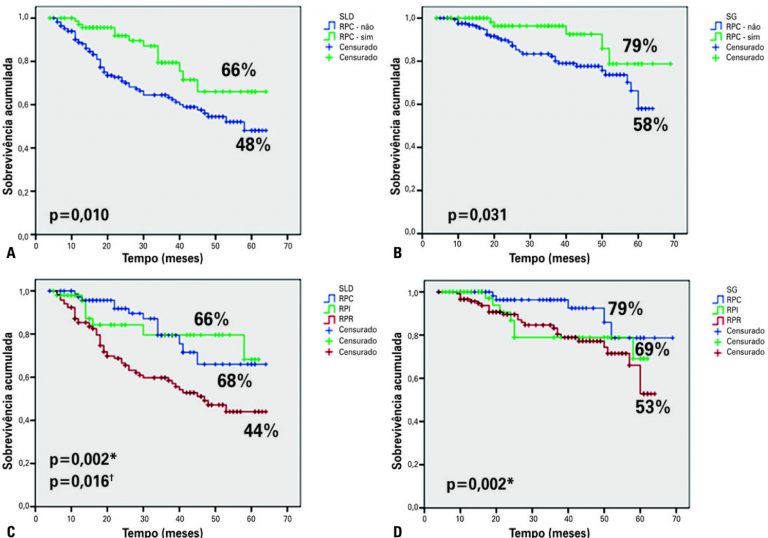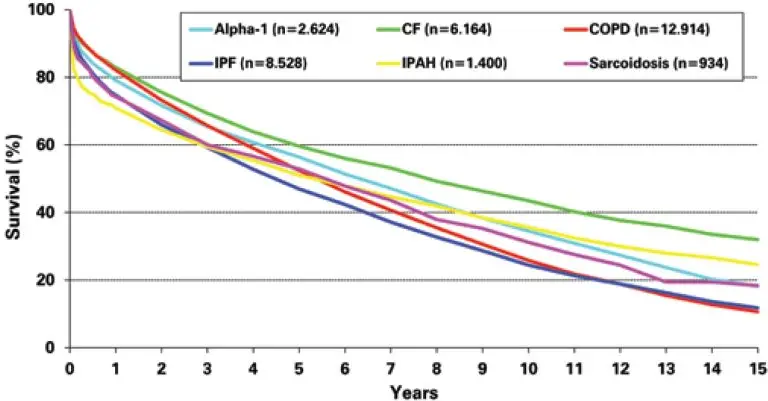17/Jan/2019
Hormone receptor-negative as a predictive factor for pathologic complete response to neoadjuvant therapy in breast cancer
einstein (São Paulo). 17/Jan/2019;17(1):eAO3434.
View Article17/Jan/2019
Hormone receptor-negative as a predictive factor for pathologic complete response to neoadjuvant therapy in breast cancer
DOI: 10.31744/einstein_journal/2019AO3434
ABSTRACT Objective To define a predictive factor for pathologic complete response, compare the oncologic outcomes associated with the degree of pathologic response after neoadjuvant chemotherapy, and to analyze pathologic complete response as a prognostic factor for overall survival and progression-free survival. Methods A retrospective study of patients admitted to Hospital Estadual Mário Covas and Hospital Anchieta from 2008 to 2012, with locally advanced breast cancer. Hormone receptor status, HER2 status, histologic and nuclear grade, age upon diagnosis and histological type […]
Keywords: Breast neoplasms/pathology; Neoadjuvant therapy; Predictive value of tests; Prognosis; Survivorship (Public Health)
21/Aug/2015
Higher overall survival in metastatic pancreatic cancer: the impact of where and how treatment is delivered
einstein (São Paulo). 21/Aug/2015;13(3):347-51.
View Article21/Aug/2015
Higher overall survival in metastatic pancreatic cancer: the impact of where and how treatment is delivered
DOI: 10.1590/S1679-45082015AO3303
Objective To determine the overall survival of patients with advanced pancreatic cancer and evaluate factors that impact prognosis in a private cancer center. Methods Data from the Hospital Cancer Registry at Hospital Israelita Albert Einstein were retrospectively collected. The patients enrolled had metastatic cancer at diagnosis or earlier staging and subsequent recurrence. Cases of neuroendocrine tumors were excluded. Results A total of 65 patients were evaluated, including 63 with adenocarcinoma. The median overall survival for patients in all stages was […]
Keywords: Adenocarcinoma/drug therapy; Pancreatic neoplasms; Survivorship (Public Health)
01/Apr/2015
Lung transplantation
DOI: 10.1590/S1679-45082015RW3156
ABSTRACT Lung transplantation is a globally accepted treatment for some advanced lung diseases, giving the recipients longer survival and better quality of life. Since the first transplant successfully performed in 1983, more than 40 thousand transplants have been performed worldwide. Of these, about seven hundred were in Brazil. However, survival of the transplant is less than desired, with a high mortality rate related to primary graft dysfunction, infection, and chronic graft dysfunction, particularly in the form of bronchiolitis obliterans syndrome. […]
Keywords: Brazil; Lung transplantation; Lung transplantation/contraindications; Survivorship (Public Health)



